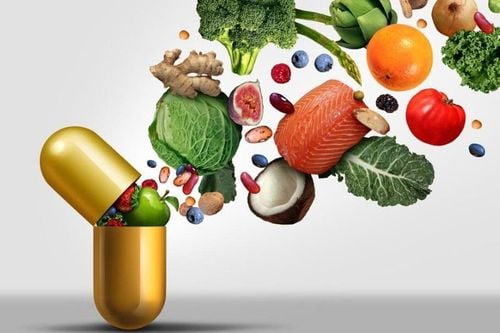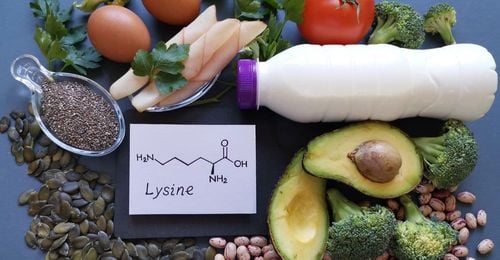This is an automatically translated article.
Lysine is an essential amino acid that cannot be synthesized by the human body. Lysine is used to synthesize proteins in the body, so lysine deficiency will affect growth and development in children.1. The role of lysine in children
Lysine is an essential amino acid for adults and children because of the following benefits:In many studies, Lysine has been selected to investigate its ability to prevent and treat herpes and herpes infections. Lysine also increases intestinal calcium absorption and renal excretion of calcium, suggesting a potential role in the management of osteoporosis. Additionally, Lysine has been studied for its effects on increasing muscle mass, improving glucose metabolism and related toxic glycated byproducts, and improving anxiety. Case reports suggest that lysine can improve pain perception. However, clinical trials are limited to support the actual use of lysine. Obviously, with the above uses, lysine is an essential amino acid for the development and growth of children. Specifically, lysine for young children has the following effects:
Stimulates taste, increases the activity of digestive enzymes to help children eat more deliciously Promotes internal metabolism, supports absorption of substances other nutrition from food Increase height for children through enhanced absorption of calcium from the intestinal tract Increase collagen production Support immune system activity, increase resistance
2. Manifestations of lysine deficiency in children
Although uncommon, lysine deficiency can have harmful effects on a child's health. Children who are anorexic or picky eaters of foods rich in lysine are at the highest risk of lysine deficiency.The manifestations of lysine deficiency in children are quite diverse, appearing on many organs such as:
Thin, tired body Irritability, agitation Indifference to the external environment Nausea, vomiting Dizziness Children lose a lot of hair Growth delay tall or stunted

Trẻ còi cọc là một trong những biểu hiện của thiếu Lysine
3. Measures to supplement lysine for children
Lysine is an essential amino acid that the body cannot produce on its own. The child's body gets lysine from food and supplements. Some of the foods listed below are the safest ways to add lysine to children:White meat: Chicken for example is also a favorite food of children. Chicken is also rich in zinc, which stimulates children's taste buds. Pork, beef: In addition to lysine, children are also provided with a rich source of protein through these foods. Beans: Soybeans, soybeans, lentils Fresh milk, yogurt, cheese and other dairy products: This is a nutritious and palatable food source for most children. In production, many amino acids are added, including lysine. Some nuts such as walnuts, almonds Vegetables including pumpkin, carrots, radishes Fruits such as bananas, oranges, pears Seafood such as tuna, shrimp: Lysine is contained in tuna with high content. In addition, tuna is also rich in omega 3 micronutrients. Eggs: Eggs are easy to buy, easy to prepare and a favorite food of many children. However, lysine bioavailability is lost during food processing, such as heating, cooking at high temperatures, or processing in the presence of sugar or yeast. So, in addition to food, lysine supplementation for young children can also be made through supplements. Lysine supplements on the market are manufactured in many forms such as capsules, powders, and solutions. In particular, the liquid form is the most common and suitable for young children.
In addition to lysine, children should also add necessary micronutrients such as selenium, zinc, chromium, vitamins B1 and B6, ginger, acerola fruit extract (vitamin C), ... to improve taste, eat delicious , reach the right height and weight and exceed the standard, have a good immune system, strengthen the resistance to get sick less often and have less digestive problems.
For more nutritional knowledge and child care for each age, parents should regularly visit the website vimec.com and make an appointment with the leading doctors, pediatric and nutrition experts of the National General Hospital. Vinmec when needing advice on children's health.













